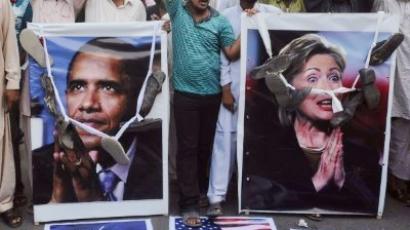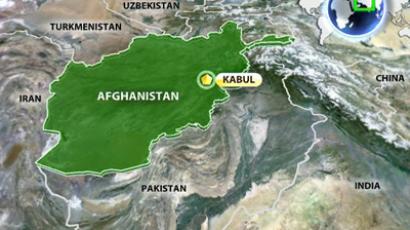Afghan bloody Tuesday: The Pakistan connection
A Sunni Muslim terrorist group in Pakistan has claimed responsibility for twin suicide bombings which killed 60 people in Afghanistan on Tuesday in the worst outbreak of sectarian violence in the country since the NATO occupation began 10 years ago.
The victims of the blasts were Shi'ite Muslims marking the major religious holiday of Ashoura in Kabul and Mazar-i-Sharif. The blast in the capital was one of the most deadly in several years, in a country where suicide bombings happen on a regular basis.
The Taliban, which has condemned the violence, claims NATO orchestrated the attacks to create an excuse to stay in Afghanistan. But a spokesman for the Pakistani militant group Lashkar-i-Jhangvi claimed it was responsible for the terrorist attacks. The authenticity of the claim is difficult to verify.
Afghanistan has been under the occupation of a US-led coalition for over a decade now. The International Security Assistance Force (ISAF) is now reducing its troop presence ahead of a scheduled pullout by 2014. The alliance is currently facing a supply crisis after Pakistan shut its border to NATO in response to an ISAF air strike which killed two dozen of its troops last month.
Washington says the strike on a checkpoint was carried out because the Pakistani military failed to report the presence of their troops in the area, which was the focus of a NATO cross-border raid on Taliban forces.
The Pakistani military responded sharply to the incident, which was the bloodiest case of collateral damage Pakistan has suffered so far from NATO’s war on the insurgency in Afghanistan.
British Pakistani author Tariq Ali told RT that he thinks the fatal air strike was deliberate, but poorly calculated.
“It wasn’t a mistake. They targeted it, and they bombed it, and it has created a complete crisis within the Pakistani military and the country at large. It’s destabilizing the one institution in that country which has held together for good or for bad – the Pakistani military. What are they trying to do? Are they trying to instigate a civil war in Pakistan prior to direct intervention and occupation?” he asked.
Relations between Islamabad and Washington, who have been strategic allies ever since the US led the intervention in Afghanistan, are now at an all-time low. The US has accused Pakistan’s army and intelligence officers of supporting Taliban fighters and undermining ISAF’s efforts in Afghanistan, while Pakistan blames the US for violating its sovereignty, indiscriminately killing its citizens and provoking violence on its territory.














